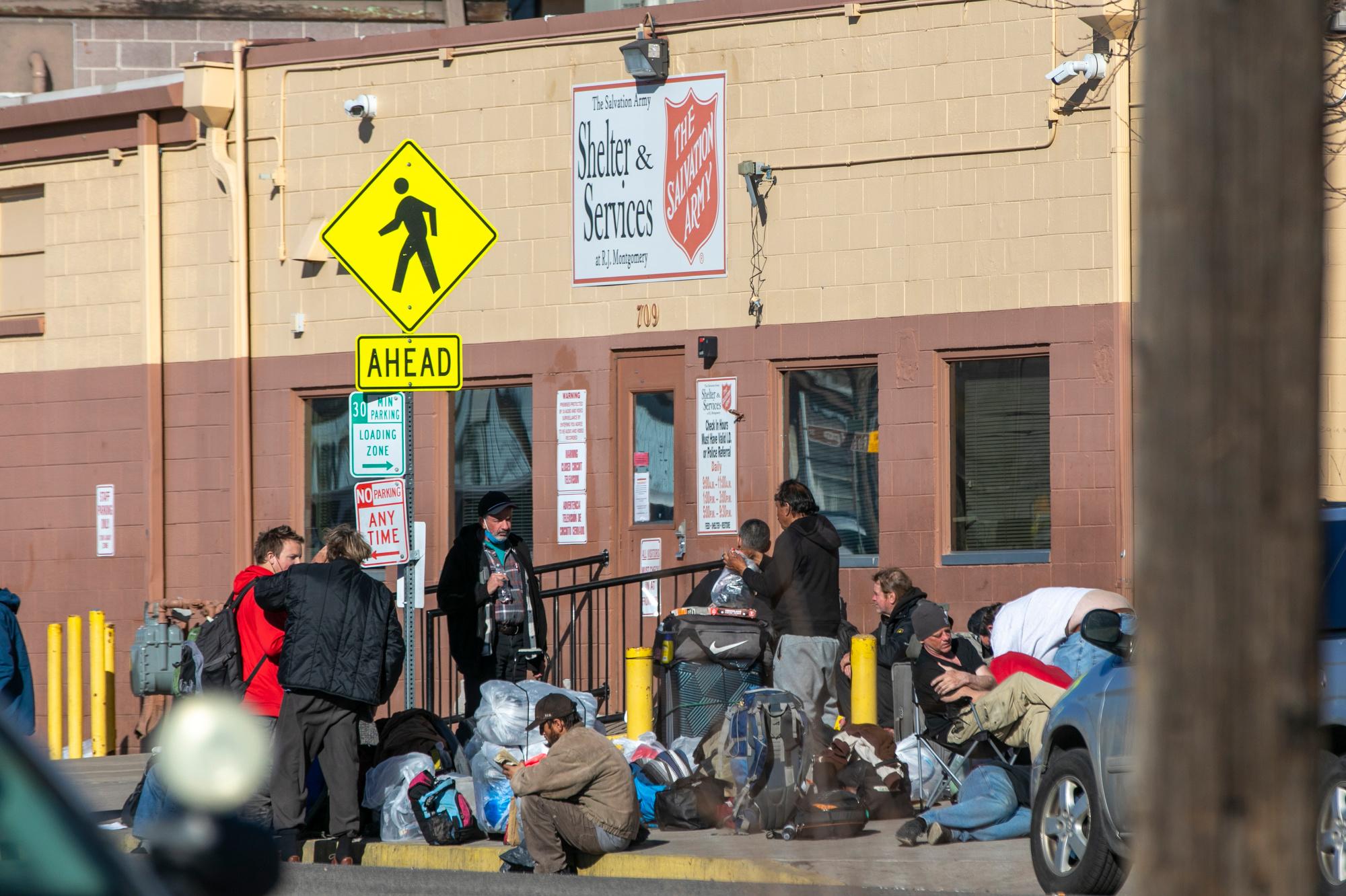
Two major developments have hit Colorado Springs as the city searches for solutions for encampments of unhoused people. On the same day the Colorado Springs City Council discussed a proposed agreement with El Paso County that would allow city crews to cleanup homeless encampments outside of city limits, a new coalition of housing advocates and a group of unhoused folks themselves, announced to the council that they had formed a “Colorado Springs Homeless Union.”
“They want us to be hidden so they can say, ‘oh yeah, the homeless people.’ And they can talk about us, but they don't have any representation in the public eye,” said the group’s leader, Shane Hood. “Now we're going to have that representation in the public eye and show them that we are powerless no more.”
This effort is not a formalized union, like those in different cities around the country which exist as chapters of the National Union of the Homeless. At least not yet, Hood said. The Springs group describes itself as a more informal collection of unhoused folks advocating on their own behalf in front of the city.
The intergovernmental agreement between the city and county, meanwhile, looks to increase the efficiency of camp cleanups between the two entities. Colorado Springs’ sprawling and amorphous city limits result in a number of complications currently for the separate city and county teams responsible for cleanups.
Mitch Hammes, the city’s neighborhood services manager, said the city’s teams have to stop at city limits.
“People experiencing homelessness would drift from one side of the street to the other where one day they're in the county, one day they're in the city and it was very hard to keep those areas clean, efficiently and effectively,” Hammes said. “The reality is that our community members driving by or walking by, they don't know where the city limits stop and the county limits start.”
The city has more staff and resources for camp cleanups than the county. The proposal allows city teams to go out into the county and conduct those cleanups. El Paso County will reimburse the city for the services. The city council is set to vote on it during their first meeting in November.
Colorado Springs council members describe the proposed agreement as part of a broader approach to homelessness. They acknowledge the cleanups are about aesthetics, about keeping the city orderly. Hammes underscored it’s also about public health, as he said the camps can become unsanitary.
Many local unhoused, including Hood, complain these cleanups are too rooted in a punitive police enforcement strategy they say is undignified.
“They're fine wherever as long as [the camps are] not in the public view,” Hood said. “So that's all they do is they just shuffle the homeless people around. That’s it. I mean, they don’t really go anywhere.”
The homeless union group mentions initial priorities like having a larger city parks budget for open public restrooms and more trash cans in public spaces. Hood also talked about advocating for free bus passes, using cards provided by local aid organizations like the Springs Rescue Mission and the Marian House Soup Kitchen.
“That way somebody (who is) working, and they just happen to lose their job and go homeless because of that, they can actually possibly get back to work and not have to buy a car to do it or pay the Uber prices,” Hood said.
Hood also said, in agreement with Hammes, that he wants the city to be clean and orderly as well. He said he doesn’t want the city overrun by encampments.
“We need to give them a place like rehab, a motel or something and give them a place to stay and give them some dignity,” Hood said.
He does know a few people who do want to live outside and people he feels should be policed. However the majority of people he knows in the unhoused community, including himself, want housing.









